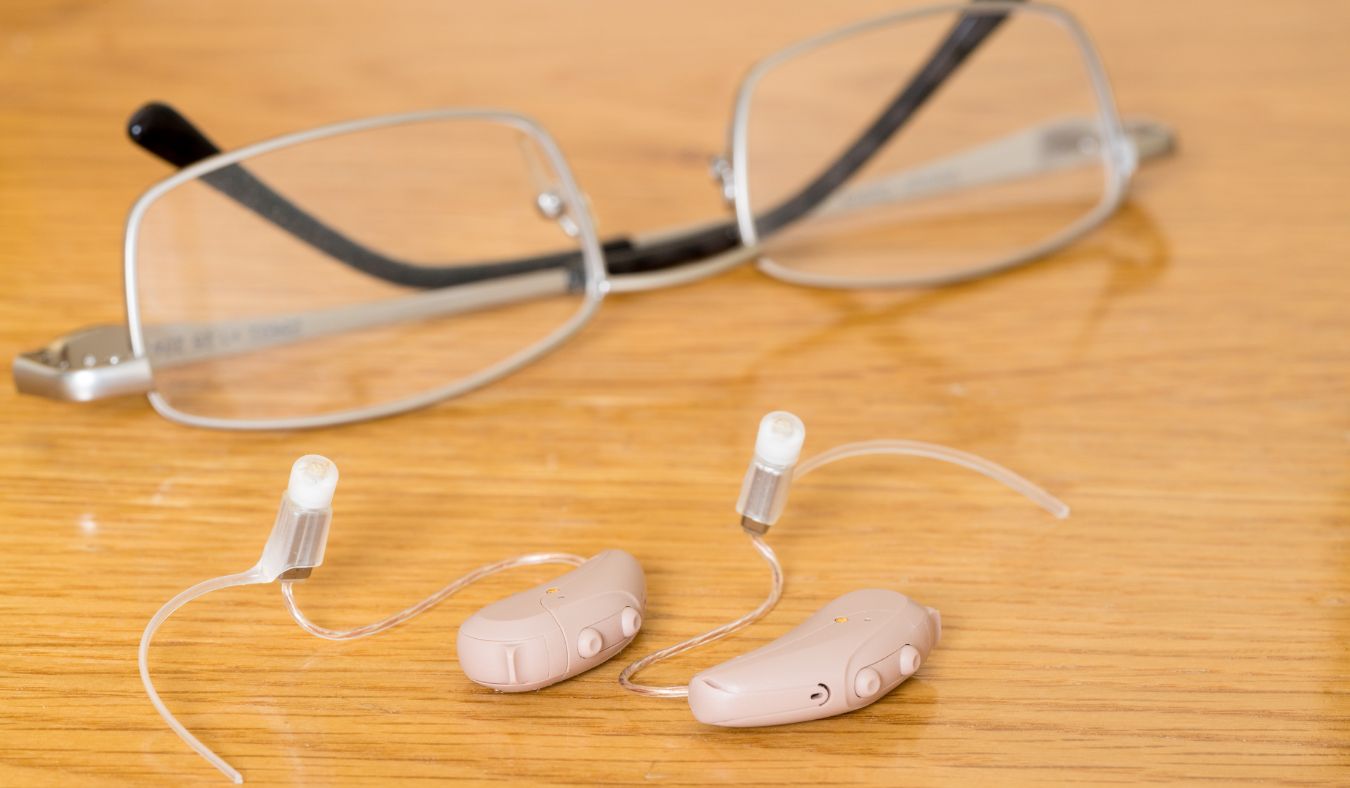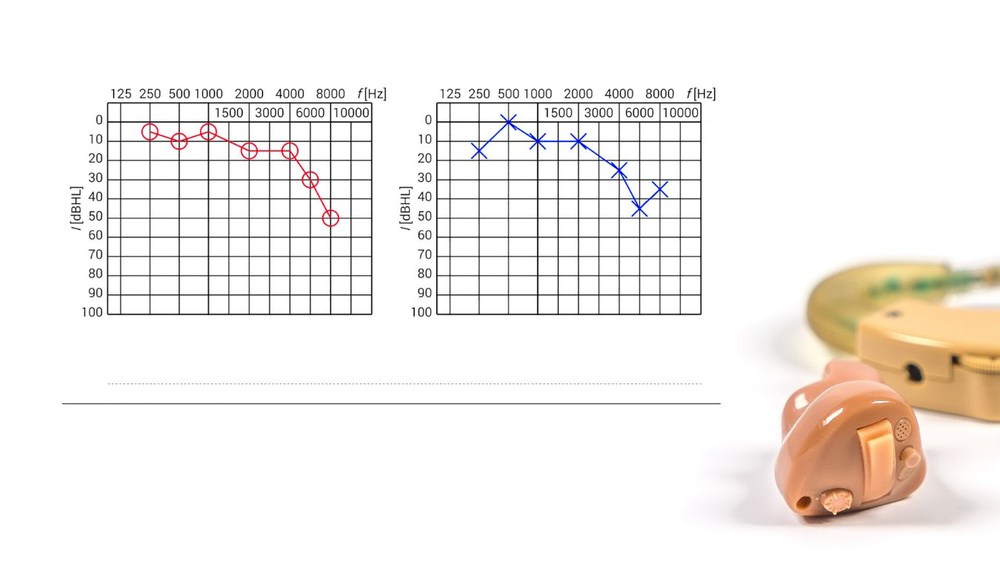How Smart Hearing Aids Automatically Adjust to Your Environment
Modern hearing aids have evolved from earlier designs that required
New Location Now Open in Eugene! LEARN MORE →

By: admin | December 2, 2024
Picture lying in bed at night, finally ready to drift off to sleep. For most people, this means tuning out the world’s ambient sounds – the distant hum of traffic, the whirr of a fan or a partner’s gentle breathing. But for individuals with hearing loss, this nightly ritual can be markedly different. The relationship between hearing and sleep isn’t always obvious at first glance, yet it profoundly impacts our daily lives and nightly rest.
Hearing loss affects approximately 466 million people worldwide, influencing far more than just daytime communication. While many understand the challenges of following conversations or missing important alerts during waking hours, fewer realize how hearing impairment can transform the landscape of sleep. Whether it’s the anxiety of potentially missing important sounds like alarm clocks and emergency signals, or the mental fatigue from straining to hear throughout the day, hearing loss creates a complex web of factors that can significantly affect sleep quality.
Studies show that people with hearing loss often have sleep problems. This isn’t mere chance but a hint at how intertwined our sleep cycles and hearing abilities truly are. Hearing loss can disrupt sleep in several ways. You might struggle to fall asleep if you’re trying to hear sounds around you. Or, if your brain is constantly compensating for the lack of sound input, it might keep you awake longer than needed. Acknowledging this connection is the initial step towards improving both your sleep and hearing health.
It’s essential to understand how hearing loss directly impacts your sleep cycle. It’s not as simple as it may seem, but gaining knowledge about it can lead to improved sleep. Hearing loss affects your sleep cycle by causing stress on your brain. This stress comes from the extra effort your brain has to make to compensate for reduced auditory input. This can make falling asleep challenging and staying asleep even more so. By understanding this, you can seek solutions that enhance both your hearing health and sleep quality.
Next, let’s discuss another important aspect: the link between sleep apnea and hearing loss. Sleep apnea, a prevalent sleep disorder characterized by interrupted breathing during sleep, has been linked to various health issues, including hearing loss. This might sound surprising but is backed by several scientific studies.
In individuals with sleep apnea, frequent pauses in breathing can cause changes in blood flow within the ear. This altered blood flow could potentially harm the delicate structures of the inner ear responsible for hearing.
When we sleep, our ears continue to pick up sounds around us. The auditory system doesn’t completely shut down during sleep; it continues to process sounds at a subconscious level. This can be particularly significant for individuals with hearing loss. If you have hearing loss and use hearing aids, you might notice some differences in your sleep patterns when you’re not wearing them.
That’s because your brain is accustomed to receiving enhanced sound input throughout the day, and suddenly without it during your sleep time, this change can potentially affect your sleep quality. Recognizing this can help guide decisions about managing both your sleep routine and hearing health care.
Night sounds can have a significant effect on those with hearing loss. The medley of sounds that fill the night – from crickets chirping to distant traffic noises – can have different effects on different people.
For some, these nocturnal noises may act as a calming source, while for others they might pose challenges. This is especially true for those with hearing loss. For them, distinguishing between relevant and irrelevant sounds can be taxing and lead to sleep disturbances.
Here are some practical steps you can take:
Understanding how night sounds affect you personally is key in formulating an effective approach towards improving both your sleep quality and hearing health management.
Tinnitus, a constant or intermittent ringing or buzzing in the ears, can significantly impact sleep quality. It’s not just an annoyance; it can lead to more serious sleep disruptions. Tinnitus often becomes more noticeable in quiet environments, like when you’re trying to fall asleep. The absence of other sounds makes the ringing or buzzing seem louder and more intrusive, potentially making it harder for you to drift off into peaceful slumber.
Understanding the role of tinnitus in sleep disruption is important for several reasons:
By gaining a better understanding of how tinnitus (ringing in the ears) affects your sleep quality, you can make informed decisions about your hearing care and take steps towards improved sleep health.
Quality sleep is essential for maintaining good mental health. When this sleep is disrupted due to hearing loss, it can have far-reaching consequences. Research shows that individuals with hearing loss often experience poor sleep quality, leading to feelings of fatigue and reduced alertness during the day. Over time, this chronic lack of restful sleep can contribute to mood changes, increased stress levels and even symptoms of depression or anxiety. Recognizing these potential mental health effects is vital for comprehensive management of your wellbeing.
Insomnia, defined by challenges in falling asleep or staying asleep, is a common issue that often appears at higher rates in those with hearing loss. For individuals experiencing hearing concerns, factors like heightened anxiety, stress or tinnitus can contribute to disrupted sleep patterns. There are actually many different ways insomnia can present, including:
The inability to hear environmental sounds or the presence of constant ringing in the ears may lead to increased nighttime restlessness and difficulty relaxing, making it harder to achieve quality sleep. Over time, poor sleep can worsen overall well-being, affecting mood, cognitive function and even physical health.
A strategy for better sleep starts with acknowledging the role of hearing loss in your sleep cycle. Once you understand this connection, you can work towards minimizing its impact on your restful slumber. Regular consultation with a specialist is essential in this process as they can provide personalized advice based on your unique needs and experiences.
Consider implementing a calming bedtime routine that helps signal to your body that it’s time for rest. This could include reading a book, taking a warm bath or practicing mindfulness meditation. Such routines can help prepare your brain for sleep by reducing stress and promoting relaxation.
If you use hearing aids, removing them at night allows your ears some rest while also ensuring they’re functioning optimally during the day when you need them most. However, if you find that lack of auditory input at night is disturbing your sleep, discuss this with your audiologist who might suggest suitable alternatives or adjustments.
Sound therapy could also be beneficial for those experiencing tinnitus as it uses soothing sounds to mask the ringing or buzzing in the ears. By reducing tinnitus-related disturbances at night, sound therapy can significantly improve sleep quality.
Finally, maintaining good bedroom hygiene – keeping noise levels low and creating an environment conducive to relaxation – can go a long way in ensuring undisturbed slumber.
Improving your sleep quality and managing your hearing health are not overnight tasks but require consistent efforts over time. With patience and perseverance, improved sleep despite hearing loss is achievable.
Enhancing your hearing capabilities can indeed pave the way for more restful nights. When you improve your ability to hear, you’re reducing the strain on your brain that occurs when it has to work overtime to process sounds. This decrease in cognitive load can make it easier for you to fall asleep and stay asleep.
By boosting your hearing, you’re giving your brain less work to do at night. This means more energy can be dedicated towards achieving a deep, restorative sleep cycle instead of compensating for diminished sound input. As a result, enhancing your hearing health can contribute significantly towards improving both your sleep quality and overall wellbeing.
Hearing aids, while primarily designed to improve auditory function, can also have an impact on sleep quality. By amplifying sounds, these devices can reduce the strain on your brain that results from hearing loss, potentially leading to better sleep. When your brain isn’t working overtime to process sounds, it can focus more on transitioning into a restful state. This shift could significantly improve your ability to fall asleep and stay asleep throughout the night.
Modern hearing aids come with features like background noise reduction and customized sound amplification which can further aid in a peaceful night’s rest. By reducing disruptive noises and enhancing important sounds, these devices can help create an environment optimal for undisturbed sleep.
However, it’s important to remember that everyone’s experience with hearing loss is unique. What works for one person might not work for another. Therefore, it’s always best to consult with a specialist who can guide you through the process of finding the right solution for you.
Improving your sleep quality is not just about managing symptoms but about enhancing your overall wellbeing. And sometimes, that enhancement could start with something as simple as using a hearing aid.
Understanding the complexities of sleep and hearing health can sometimes feel overwhelming. We get it – managing both these aspects simultaneously is not always easy. However, you’re not alone in this process.
The team at Advanced Hearing Plus is here to help. Our skilled and compassionate professionals can guide you through the process of understanding your hearing health and its impact on your sleep quality. We provide comprehensive assessments and personalized solutions tailored to your unique needs. To schedule a consultation, please call us at (541) 313-3550 in Springfield, OR, and check our website for additional information.

Modern hearing aids have evolved from earlier designs that required
By: admin | January 28, 2026

Regular hearing tests are important even if you haven’t noticed any
By: admin | November 18, 2025

Your hearing test results do more than just tell you whether you have
By: admin | September 24, 2025
